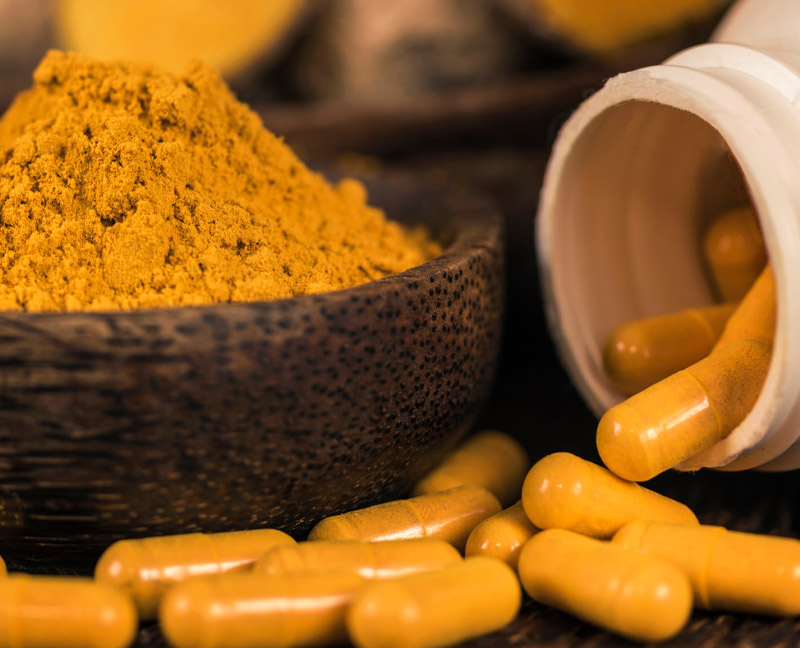The Hidden Risk of Turmeric and Other Supplements: What Influencers Won’t Tell You

By Dr. Megan McQuarrie, Shore Physicians Group, Ocean City Primary Care
You may have heard the recent story about a 57-year-old N.J. woman trying to manage joint pain who followed the advice of a medical influencer she saw on social media and began taking turmeric supplements every day. What seemed like a harmless addition to her wellness routine, promoted as “natural” and anti-inflammatory, landed her in the hospital one step away from liver failure.
Unfortunately, she’s not alone. Stories like this are becoming more common as influencers and unregulated online “experts” recommend high-dose supplements without warning of the risks. In her case, she was taking more than ten times the amount considered safe by international health standards, all without realizing the potential consequences.
“This patient had been taking 2,250 mg of turmeric daily, a dosage that is commercially available and may appear safe because it’s on the shelf,” said Dr. Megan McQuarrie of Shore Physicians Group. “But it’s actually considered a high dose, and in her case, it caused serious liver injury.”
When “Natural” Isn’t Safe
Dietary supplements may look and sound like safe alternatives to medication, but too much of a good thing can quickly become dangerous.
Supplements like turmeric, vitamin D, and even herbal detoxes are generally safe in small, food-level doses. But when taken in large or concentrated amounts, especially over time, they can overload the body and cause serious harm.
“Turmeric is a perfect example,” Dr. McQuarrie said. “Cooking with turmeric is safe, and may even offer health benefits. But when people take high-dose capsules, especially those with added black pepper extract to enhance absorption, it can overwhelm the liver’s ability to process it.”
Turmeric is now one of the most frequently cited supplements linked to toxic hepatitis in the U.S.
Other risks of excessive supplement use include:
- Kidney damage from too much vitamin D or C
- Heart issues from excessive potassium or stimulant-based weight loss pills
- Increased bleeding risk from high-dose omega-3s or ginkgo
- Digestive upset from excess magnesium or fiber
- False lab results from large amounts of biotin
Why It Happens More Often Than You Think
Unlike prescription medications, dietary supplements aren’t closely regulated in the U.S. That means there are no strict dosing standards, and ingredients don’t always match what’s listed on the label. Many supplements are marketed as “all-natural” or “doctor-approved,” but without context, those claims can be misleading and even dangerous.
“It’s really important to read the labels and fine print, check dosages, and ask your doctor if the supplement you’re interested in is right for you,” Dr. McQuarrie advised. “That includes factoring in any medical conditions or medications you’re taking, as well as how much of that substance you’re already getting from your diet. For example, foods like curries and stews can contain significant amounts of turmeric.”
It’s easy to see how someone could assume that more is better, especially when it’s being promoted as healthy. But when your body can’t break down what you’re putting in, damage can happen fast—especially to the liver and kidneys, which are responsible for filtering it all.
How to Stay Safe
Before starting any new supplement, even one you’ve seen widely promoted online, talk to your doctor, especially if you’re on other medications or have underlying health conditions.
Here are a few additional tips:
- Stick to recommended doses and avoid “high potency” or mega-dose versions unless specifically advised.
- Choose reputable brands that are third-party tested for purity and accuracy.
- Report all supplements to your healthcare provider before lab tests or procedures.
- Pay attention to symptoms like fatigue, yellowing of the skin or eyes, dark urine, or nausea. These can be signs of liver or kidney stress.
Smart Supplement Use Starts with You
Supplements can absolutely support your health, but only when used wisely and with proper guidance. The next time you see a health tip on your feed, take a step back. What works for one person might not be safe for everyone.
At Shore Physicians Group, we’re here to help you make smart, informed choices for your health. If you have questions about a supplement or want help building a safe wellness plan, don’t hesitate to reach out.
“Your health deserves more than internet advice,” Dr. McQuarrie said. “It deserves expertise and care you can trust.”
Dr. Megan McQuarrie is accepting new patients ages 10 and up at Shore Physicians Group’s Ocean City office, located at 1645 Haven Avenue, Suite C. To schedule an appointment, call 609-399-6263.